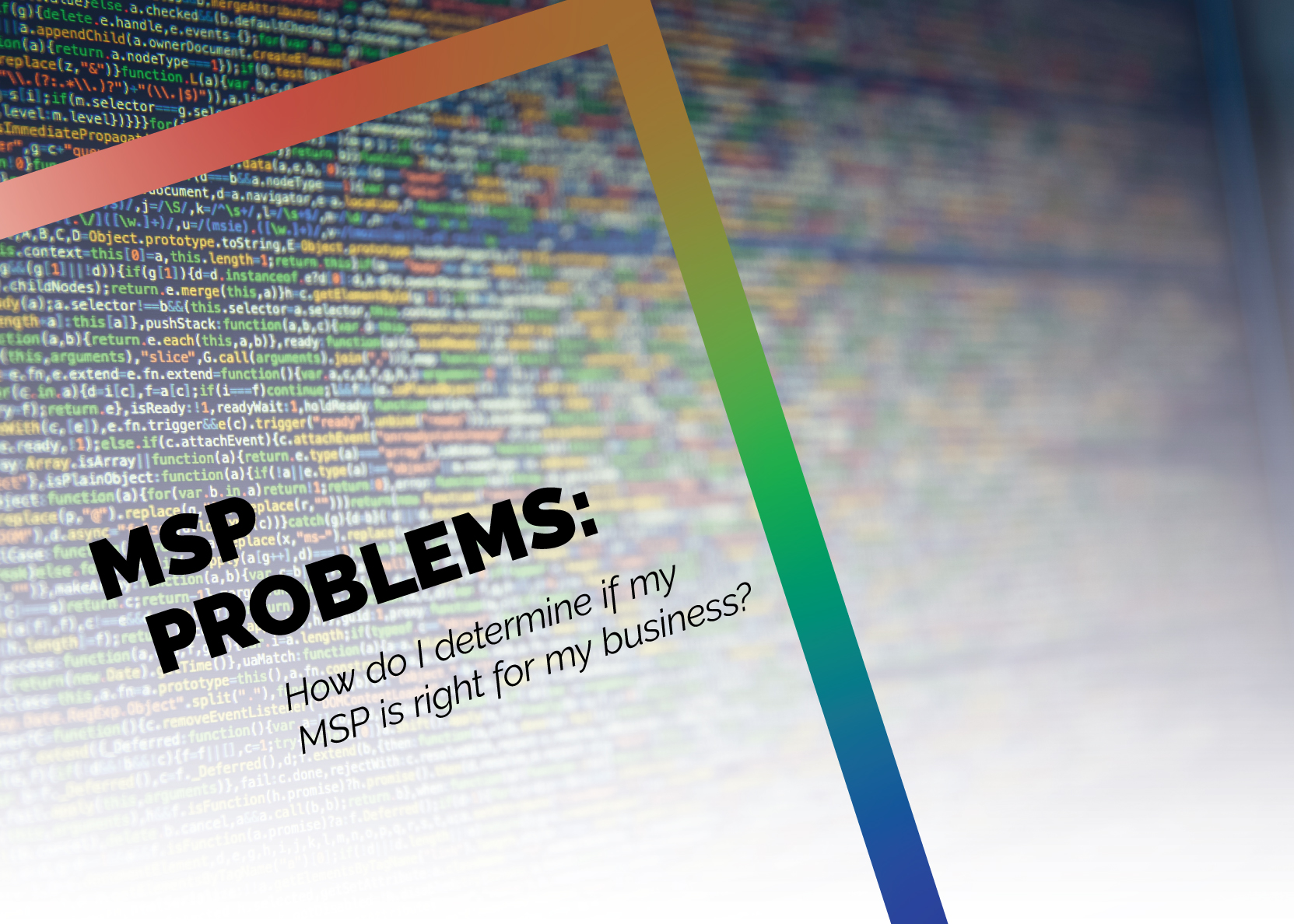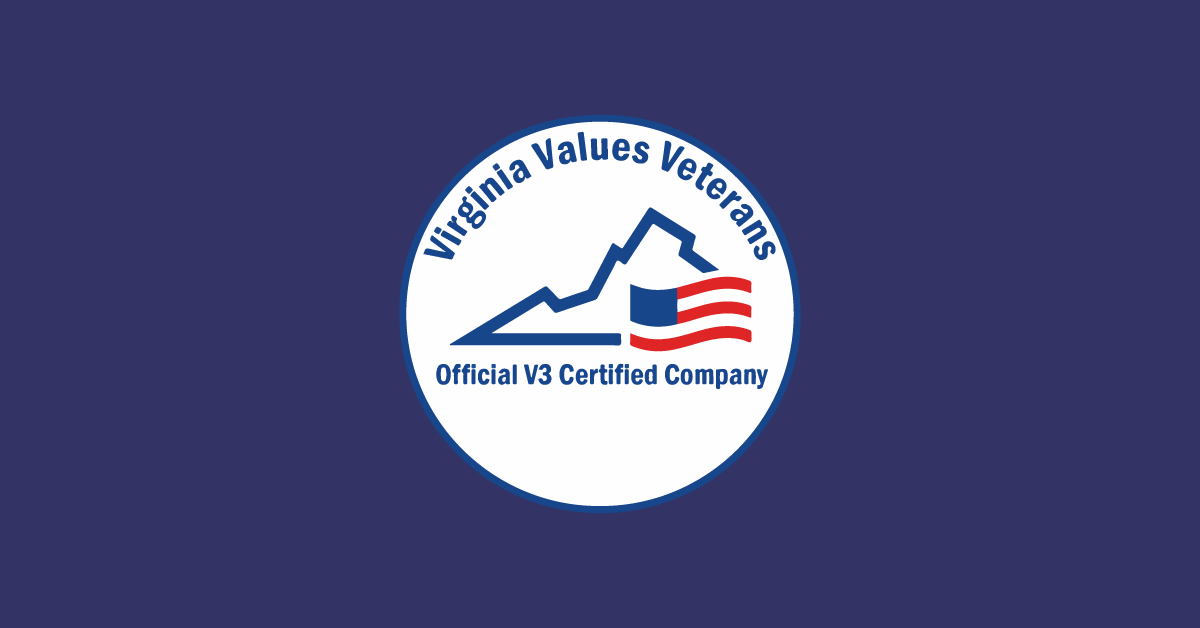3 min read
Building Culture That Works: Cobb Tech Named One of VA's Best
Cobb Technologies has been honored as one of the 2025 Best Places to Work in Virginia by Virginia Business and Best Companies Group. This prestigious...
3 min read
 Chris Wilson
Apr 30, 2020 2:40:23 PM
Chris Wilson
Apr 30, 2020 2:40:23 PM

This blog was updated on Thursday, February 4th, 2021.
There is a very simple litmus test: If you were asked a technical question, would you be confident in how to go about finding the answer to it?
There are an enormous number of benefits to partnering with a managed service provider (MSP) or managed IT services (MITS) provider. To name a few, organizations that make use of a managed service provider can expect the entirety of their network to be monitored and maintained, protected from cyber attack, and can also rely on help desk support, user training, and insider knowledge from a vCIO.
But how do you know that your MSP or MITS provider is a good fit for your company, and are actually doing what they promised? To answer this question, there is a simple litmus test:
If you were asked a technical question, would you be confident in knowing how to find the answer?
What a MSP or MITS partnership comes down to is trust, and trust is built through communication. If you are uncomfortable speaking to your MSP or MITS provider, they are not a business you should remain in partnership with.
Other than this litmus test, there are a few red flags you should look out for in any MSP or MITS partnership:
In essence, and good MSP or MITS partnership will provide your organization with education, guidance, security, and reliability.
The hallmark of a good service provider is one that educates your business about its current environment, the predictions of that environment, the risks to that environment, and how to use your environment to its full potential.
MSP and MITS providers should offer hands-on training, give the option for help desk support, and provide quarterly business reviews with their vCIO.
A vCIO is the perfect indicator of a good MSP — a vCIOs primary role is to educate your business about the technology available to you, how they think your business’ operations could be improved via the integration of that technology, and what your business can expect in terms of technological growth in the future.
While most quarterly business reviews will include numbers on units sold and market share, a review with your vCIO will give you indications about the health of your business’ network. During these meetings you should receive updates about the condition of your hardware, if your backups are running properly and have been tested recently, if there were any attempts to break into your network, and if there are any options available to increase security, or decrease cost by getting rid of unneeded applications.
In short, when your manager asks you “are the backups secure?”, you should be able to answer that question confidently.
A good service provider won’t just provide you with a solution — they’ll manage that solution. While this means that your business won’t have to worry about managing firewalls and antivirus software, it also means that your MSP should be analyzing the workflows that are paired with your various solutions.
Simply put, if your MSP is providing your business with a software solution like Microsoft Office365, are they analyzing how that software interacts with other applications in your network? Are they paying attention to how documents are managed, and the processes that take place on your network?
A MSP or MITS provider should always be on the lookout for ways to increase the efficiency of your network, and by extension, your business practices in general. If the help desk provided by your service provider is noticing your employees are having trouble with a particular application, or even a step in the process of using that application, they should analyze the situation in order to determine if there is a problem with the implementation of the application, or if re-training needs to take place.
Just as many digital services are able to find patterns (and act upon those patterns) from collected customer data, a MSP or MITS provider has a treasure trove of employee and operational data available to them — a good service provider will use this to their advantage, and identify patterns in order to increase efficiency and productivity.
Speaking of treasure troves of data, make no mistake — a partnership with a MSP should never be taken lightly. They are handling the intricacies of your business’ data and network, and are responsible for the security of not just your business, but your employees, and your clients and customers.
If your business is hacked, for instance, it’s not just the data breach you’ll have to worry about — your brand reputation will also be damaged, requiring you to spend significant time and energy repairing relationships with clients.
If you have doubts about your MSPs ability to protect your business’ network, start asking them questions — they might be on top of the health of your network, but not on top of communication. If the communication between your organization and your provider doesn’t improve, however, it may be time for a new MSP or MITS provider

3 min read
Cobb Technologies has been honored as one of the 2025 Best Places to Work in Virginia by Virginia Business and Best Companies Group. This prestigious...

5 min read
Cobb Technologies is honored to hold the SWaM (Small, Women-owned, and Minority-owned Business) certification, awarded by the Commonwealth of...

5 min read
Every year, thousands of Veterans transition from military service to civilian careers in Virginia, bringing invaluable skills and experiences to...